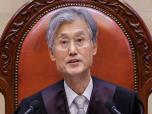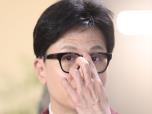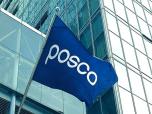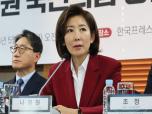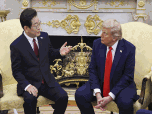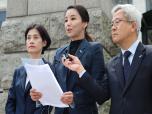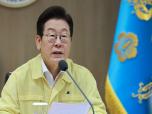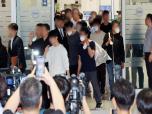[위키리크스 원문-2010. 2.22 보고] 천영우 발언
"김정일 죽은 뒤 2~3년내 북한 붕괴"
Monday, 22 February 2010, 09:32
S E C R E T SEOUL 000272
SIPDIS
EO 12958 DECL: 02/22/2034
TAGS PREL, PGOV, KNNP, ECON, SOCI, KS, KN, JA, CH
SUBJECT: VFM CHUN YOUNG-WOO ON SINO-NORTH KOREAN RELATIONS
Classified By: AMB D. Kathleen Stephens. Reasons 1.4 (b/d).
Summary
-------
1. (S) Vice Foreign Minister Chun Yung-woo told the Ambassador
February 17th that China would not be able to stop North
Korea's collapse following the death of Kim Jong-il (KJI). The
DPRK, Chun said, had already collapsed economically and would
collapse politically two to three years after the death of Kim
Jong-il. Chun dismissed ROK media reports that Chinese
companies had agreed to pump 10 billion USD into the North's
economy. Beijing had "no will" to use its modest economic
leverage to force a change in Pyongyang's policies -- and the
DPRK characterized as "the most incompetent official in China"
-- had retained his position as chief of the PRC's 6PT
delegation. Describing a generational difference in Chinese
attitudes toward North Korea, Chun claimed XXXXXXXXXXXX
believed Korea should be unified under ROK control. Chun
acknowledged the Ambassador's point that a strong ROK-Japan
relationship would help Tokyo accept a reunified Korean
Peninsula. End summary.
VFM Chun on Sino-North Korean Relations...
------------------------------------------
2. (S) During a February 17 lunch hosted by Ambassador
Stephens that covered other topics (septel), ROK Vice Foreign
Minister and former ROK Six-Party Talks (6PT) Head of
Delegation Chun Yung-woo predicted that China would not be
able to stop North Korea's collapse following the death of Kim
Jong-il (KJI). The DPRK, Chun said, had already collapsed
economically; following the death of KJI, North Korea would
collapse politically in "two to three years." Chun dismissed
ROK media reports that Chinese companies had agreed to pump 10
billion USD into the North's economy; there was "no substance"
to the reports, he said. The VFM also ridiculed the Chinese
foreign ministry's "briefing" to the ROK embassy in Beijing on
Wang Jiarui's visit to North Korea; the unidentified briefer
had "basically read a Xinhua press release," Chun groused,
adding that the PRC interlocutor had been unwilling to answer
simple questions like whether Wang had flown to Hamhung or
taken a train there to meet KJI.
3. (S) The VFM commented that China had far less influence on
North Korea "than most people believe." Beijing had "no will"
to use its economic leverage to force a change in Pyongyang's
policies and the DPRK leadership "knows it." Chun acknowledged
that the Chinese genuinely wanted a denuclearized North Korea,
but the PRC was also content with the status quo. Unless China
pushed North Korea to the "brink of collapse," the DPRK would
likely continue to refuse to take meaningful steps on
denuclearization.
XXXXXXXXXXXX
-----------------------------------------
4. (S) Turning to the Six Party Talks, Chun said it was "a
very bad thing" that Wu Dawei had retained his position as
chief of the PRC's delegation. XXXXXXXXXXXX said it appeared
that the DPRK "must have lobbied extremely hard" for the nowretired
Wu to stay on as China's 6PT chief. [NAME REMOVED]
complained that Wu is the PRC's XXXXXXXXXXXX an arrogant,
Marx-spouting former Red Guard who "knows nothing about North
Korea, nothing about nonproliferation and is hard to
communicate with because he doesn't speak English." Wu was
also a hardline nationalist, loudly proclaiming -- to anyone
willing to listen -- that the PRC's economic rise represented
a "return to normalcy" with China as a great world power.
...China's "New Generation" of Korea-Hands...
---------------------------------------------
5. (S) Sophisticated Chinese officials XXXXXXXXXXXX stood in
sharp contrast to Wu, according to VFM Chun.XXXXXXXXXXXX Chun
claimed XXXXXXXXXX believed Korea should be unified under ROK
control.XXXXXXXXXXXX, Chun said, were ready to "face the new
reality" that the DPRK now had little value to China as a
buffer state -- a view that since North Korea's 2006 nuclear
test had reportedly gained traction among senior PRC leaders.
...PRC Actions In A DPRK Collapse Scenario...
---------------------------------------------
6. (S) Chun argued that, in the event of a North Korean
collapse, China would clearly "not welcome" any U.S. military
presence north of the DMZ. XXXXXXXXXXXX Chun XXXXXXXXXXXX said
the PRC would be comfortable with a reunified Korea controlled
by Seoul and anchored to the United States in a "benign
alliance" -- as long as Korea was not hostile towards China.
Tremendous trade and labor-export opportunities for Chinese
companies, Chun said, would also help salve PRC concerns about
living with a reunified Korea. Chundismissed the prospect of a
possible PRC military intervention in the event of a DPRK
collapse, noting that China's strategic economic interests now
lie with the United States, Japan, and South Korea -- not
North Korea. Moreover, Chun argued, bare-knuckle PRC military
intervention in a DPRK internal crisis could "strengthen the
centrifugal forces in China's minority areas."
...and Japan
------------
7. (S) Chun acknowledged the Ambassador's point that a strong
ROK-Japan relationship would help Tokyo accept a reunified
Korean Peninsula under Seoul's control. Chun asserted that,
even though "Japan's preference" was to keep Korea divided,
Tokyo lacked the leverage to stop reunification in the event
the DPRK collapses. STEPHENS
S E C R E T SEOUL 000272
SIPDIS
EO 12958 DECL: 02/22/2034
TAGS PREL, PGOV, KNNP, ECON, SOCI, KS, KN, JA, CH
SUBJECT: VFM CHUN YOUNG-WOO ON SINO-NORTH KOREAN RELATIONS
Classified By: AMB D. Kathleen Stephens. Reasons 1.4 (b/d).
Summary
-------
1. (S) Vice Foreign Minister Chun Yung-woo told the Ambassador
February 17th that China would not be able to stop North
Korea's collapse following the death of Kim Jong-il (KJI). The
DPRK, Chun said, had already collapsed economically and would
collapse politically two to three years after the death of Kim
Jong-il. Chun dismissed ROK media reports that Chinese
companies had agreed to pump 10 billion USD into the North's
economy. Beijing had "no will" to use its modest economic
leverage to force a change in Pyongyang's policies -- and the
DPRK characterized as "the most incompetent official in China"
-- had retained his position as chief of the PRC's 6PT
delegation. Describing a generational difference in Chinese
attitudes toward North Korea, Chun claimed XXXXXXXXXXXX
believed Korea should be unified under ROK control. Chun
acknowledged the Ambassador's point that a strong ROK-Japan
relationship would help Tokyo accept a reunified Korean
Peninsula. End summary.
VFM Chun on Sino-North Korean Relations...
------------------------------------------
2. (S) During a February 17 lunch hosted by Ambassador
Stephens that covered other topics (septel), ROK Vice Foreign
Minister and former ROK Six-Party Talks (6PT) Head of
Delegation Chun Yung-woo predicted that China would not be
able to stop North Korea's collapse following the death of Kim
Jong-il (KJI). The DPRK, Chun said, had already collapsed
economically; following the death of KJI, North Korea would
collapse politically in "two to three years." Chun dismissed
ROK media reports that Chinese companies had agreed to pump 10
billion USD into the North's economy; there was "no substance"
to the reports, he said. The VFM also ridiculed the Chinese
foreign ministry's "briefing" to the ROK embassy in Beijing on
Wang Jiarui's visit to North Korea; the unidentified briefer
had "basically read a Xinhua press release," Chun groused,
adding that the PRC interlocutor had been unwilling to answer
simple questions like whether Wang had flown to Hamhung or
taken a train there to meet KJI.
3. (S) The VFM commented that China had far less influence on
North Korea "than most people believe." Beijing had "no will"
to use its economic leverage to force a change in Pyongyang's
policies and the DPRK leadership "knows it." Chun acknowledged
that the Chinese genuinely wanted a denuclearized North Korea,
but the PRC was also content with the status quo. Unless China
pushed North Korea to the "brink of collapse," the DPRK would
likely continue to refuse to take meaningful steps on
denuclearization.
XXXXXXXXXXXX
-----------------------------------------
4. (S) Turning to the Six Party Talks, Chun said it was "a
very bad thing" that Wu Dawei had retained his position as
chief of the PRC's delegation. XXXXXXXXXXXX said it appeared
that the DPRK "must have lobbied extremely hard" for the nowretired
Wu to stay on as China's 6PT chief. [NAME REMOVED]
complained that Wu is the PRC's XXXXXXXXXXXX an arrogant,
Marx-spouting former Red Guard who "knows nothing about North
Korea, nothing about nonproliferation and is hard to
communicate with because he doesn't speak English." Wu was
also a hardline nationalist, loudly proclaiming -- to anyone
willing to listen -- that the PRC's economic rise represented
a "return to normalcy" with China as a great world power.
...China's "New Generation" of Korea-Hands...
---------------------------------------------
5. (S) Sophisticated Chinese officials XXXXXXXXXXXX stood in
sharp contrast to Wu, according to VFM Chun.XXXXXXXXXXXX Chun
claimed XXXXXXXXXX believed Korea should be unified under ROK
control.XXXXXXXXXXXX, Chun said, were ready to "face the new
reality" that the DPRK now had little value to China as a
buffer state -- a view that since North Korea's 2006 nuclear
test had reportedly gained traction among senior PRC leaders.
...PRC Actions In A DPRK Collapse Scenario...
---------------------------------------------
6. (S) Chun argued that, in the event of a North Korean
collapse, China would clearly "not welcome" any U.S. military
presence north of the DMZ. XXXXXXXXXXXX Chun XXXXXXXXXXXX said
the PRC would be comfortable with a reunified Korea controlled
by Seoul and anchored to the United States in a "benign
alliance" -- as long as Korea was not hostile towards China.
Tremendous trade and labor-export opportunities for Chinese
companies, Chun said, would also help salve PRC concerns about
living with a reunified Korea. Chundismissed the prospect of a
possible PRC military intervention in the event of a DPRK
collapse, noting that China's strategic economic interests now
lie with the United States, Japan, and South Korea -- not
North Korea. Moreover, Chun argued, bare-knuckle PRC military
intervention in a DPRK internal crisis could "strengthen the
centrifugal forces in China's minority areas."
...and Japan
------------
7. (S) Chun acknowledged the Ambassador's point that a strong
ROK-Japan relationship would help Tokyo accept a reunified
Korean Peninsula under Seoul's control. Chun asserted that,
even though "Japan's preference" was to keep Korea divided,
Tokyo lacked the leverage to stop reunification in the event
the DPRK collapses. STEPHENS
<저작권자ⓒ뷰스앤뉴스. 무단전재-재배포금지>

